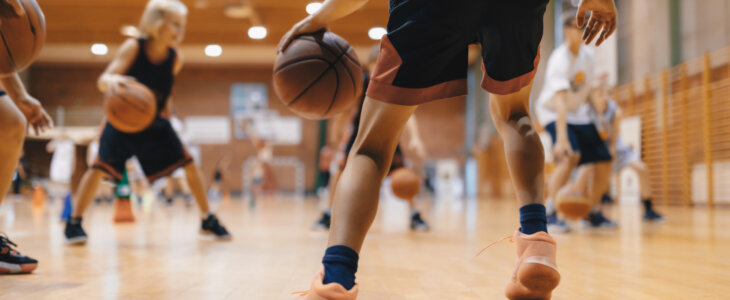According to the U.S. Centers for Disease Control and Prevention, by 2022, 2.3 million children and adolescents who were aged 17 or less had received a concussion or brain injury diagnosis. The federal agency also indicates that youth sports like boys’ tackle football, girls’ soccer, and boys’ wrestling are sports with some of the highest youth concussion rates nationwide. While concussions may seem like mild injuries, they are a form of traumatic brain injury, and the short and long-term consequences of brain injuries can be significant.
Understanding Concussions
A concussion is a mild to moderate form of traumatic brain injury. Traumatic brain injuries occur when a collision or jolt to the head causes damage that changes the way the brain functions. Violent collisions cause most concussions that happen in youth sports and falls. A blow to the head can cause nerves and blood vessels in the brain to stretch or tear, resulting in chemical changes that affect brain function. The body sends all its resources to the affected area to repair the damage, which can cause fatigue and impact how other bodily systems function.
While a single concussion may not cause permanent damage to the brain, multiple concussions over a period of time can elevate a person’s risk of developing significant brain disorders. Multiple concussions or head injuries can cause chronic traumatic encephalopathy or CTE. CTE is a dementia syndrome that causes impaired judgment, increased aggression, poor impulse control, and memory loss. Professional athletes seem more prone to the disease than other individuals, potentially due to the number of concussions and brain trauma from playing contact sports. Repeated head injuries may also increase a person’s risk of eventually developing other degenerative conditions, such as dementia.
The short-term consequences may not seem frightening, but the long-term complications associated with concussions stemming from youth sports can be devastating. In addition to the development of brain conditions, concussions may also lead to chronic headaches, memory issues, lack of coordination, and poor sleep.
Identifying Concussion Symptoms in Children and Adolescents
Unfortunately, it may be hard for parents to identify the signs of concussion in children, especially younger children, because the symptoms can present differently in children than in adults. If you witness your child fall or take a brutal hit during a practice or youth sport, seek medical attention as soon as possible. Although your kid may want to continue with the game, remove them from play and take them to a doctor.
Keep an eye on your child after an intense hit or fall and watch for some of the most common symptoms of concussion, including:
- Headache or pain
- Nausea and vomiting
- Coordination or balance problems
- Blurry vision
- Sensitivity to light or noises
- Fatigue
- Difficulty concentrating
- Memory problems
- General discomfort
Talk to your child and ask how they feel and what they remember. Parents may also notice:
- Stunned or dazed appearance
- General confusion
- Loss of consciousness
- Behavioral or personality changes
- Changes in sleeping patterns
- Speech repetition or slow answers to questions
If your child experiences a seizure or slurred speech, or one pupil is larger than the other, seek emergency medical treatment.
Treatment Options
Your child’s treatment options will depend on the severity of the brain trauma. In most cases, rest is the best treatment option. It is best to follow your doctor’s instructions and give your child plenty of time to rest and heal. Help your child avoid activities that need intense concentration, or that may aggravate concussion symptoms like:
- Using a cell phone for extended periods
- Watching TV
- Playing video games
- Studying
- Working
- Exercise
- Engaging in sports and other physical activities
Older adolescents should also avoid driving. A doctor may also suggest taking over-the-counter pain medications like acetaminophen.
Let Us Help You Get Your Child Back in the Game
Always take a potential concussion seriously. If you suspect your child has a concussion or other head trauma, consult the professionals at Long Island Spine Rehabilitation Medicine. Contact our office today and schedule an appointment. We provide compassionate, comprehensive spine, sports, and musculoskeletal care.
